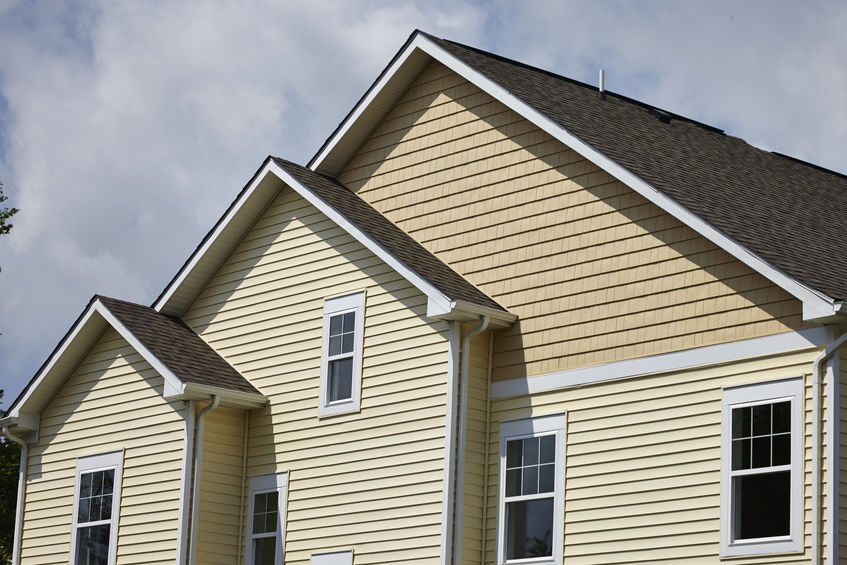
Brick and vinyl are some of the most popular siding materials used in modern buildings. However, choosing between the two is one of the most difficult tasks for homeowners, as they have their benefits and disadvantages. In this article, we will be discussing the differences and similarities between brick and vinyl siding to give you an idea of the best siding material you can use for your next project.
What is Brick Siding?
Brick siding is comprised of a thin layer of real clay brick laid with mortar or an adhesive. A little step is cast into the footings and concrete foundation walls of brick-sided homes to support the brick. Alternatively, a heavy iron angle mounted to the foundation wall can be used to provide support, creating a shelf for the brick. This means that the weight of the brick siding can be supported by either a step or shelf, taking care of the downward or vertical load of the brick. It is usually laid in a single stack and anchored to the framed wall using metal ties that are cemented into the mortar joints.
What is vinyl siding?
Vinyl siding is made up of a durable plastic exterior that mimics the natural patterns of wood clapboard, or battens. Vinyl siding is an engineered product that is primarily manufactured from polyvinyl chloride resin. Unlike brick, vinyl siding is available in a broad spectrum of colors and can be customized to suit your style and preferences. The material is cut in lengths and nailed to allow for expansion and contraction. A sheathing insulation board or house wrap is used to insulate the vinyl and level out the exterior.
Factors to Consider When Choosing Between Brick and Vinyl Siding
- Installation Considerations
While manufacturers consider vinyl as tough and resistant to mild weather, it is less waterproof, which makes it highly vulnerable to storm damage. A poor installation such as nailing or screwing each panel before locking it to create a seal may result in water seeping into the space between the surface of a home and the siding. This can lead to mold invasion or extensive damage to your property. However, the proper materials, construction, design, and maintenance of a brick siding ensures a durable structure that lasts for many decades.
- Safety and Fire Resistance
Vinyl siding can bend, break or become very brittle in extreme weather conditions. Hailstorms can also cause it to dent and scratch. Unlike brick siding, vinyl cannot withstand a lot of heat when exposed to fire. On the other hand, brick siding is highly durable, fire-resistant and provides excellent protection to natural elements.
- Longevity
Brick is extremely durable compared to other siding materials such as vinyl. Vinyl is prone to damage from natural elements or other objects blown around by strong winds. Another benefit of brick siding is that it is made from natural materials, which not only provides better health and comfort but also ensures overall well-being for homeowners.
Which is the Best Siding Material?
Vinyl siding is a popular choice among homeowners because of its budget appeal. It is commonly used in manufactured housing, mobile homes, and moderate-priced apartments. Its ease of installation and endless customization options allows homeowners to save money on labor costs. However, vinyl siding can have an adverse effect on the long-term value of commercial or residential space. On the contrary, brick has a natural ability to adjust to changes in temperature, which results in less energy for heating and cooling homes. It is highly durable and can last for a very long period without showing signs of damage. When compared to vinyl, brick is considered the best siding material as it lasts longer and requires very little maintenance to keep it in good condition.
Although purchasing vinyl siding costs less than brick, it is less durable and requires a high level of maintenance. When you factor in the costs for regular maintenance and likely repairs, brick offers a greater value for builders and homeowners. Brick siding is a great choice for homeowners seeking high property value, curb appeal, low maintenance and durability as it endures the test of time.
